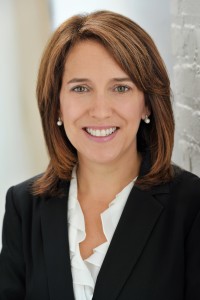 This week The Glass Hammer is profiling successful women in the derivatives industry.
This week The Glass Hammer is profiling successful women in the derivatives industry.
By Tina Vasquez, Managing Editor
In November 2013, Catherine Clay received a career-changing promotion: she became CEO of Livevol, which offers options analysis and trade execution software. The CEO says the company extracts data from the market and gives clients what they need “in a sea of noise.”
If it weren’t for a call from Clay’s sister, however, she may have never entered the derivatives industry. In the early 90’s, Clay’s sister got a job in San Francisco manually updating market maker quotes at what was then the Pacific Exchange. One day she called Clay and told her this was the industry for her, believing her sister’s natural competitive nature would make her a trading floor natural – and she was.
In The Beginning
Clay began her career at Interactive Broker’s market making unit, Timber Hill. She started as a clerk and worked her way up to director of floor trading and operations, spending about 12 years on the NYSE Options Floor, overseeing a staff of 20 traders, brokers, and back office staff. While at Timber Hill, she also served on NYSE Committees and was involved with floor trading, listing, membership, and arbitration.
Her involvement in Timber Hill’s mentorship program continues to be a bright spot in Clay’s career. The formal program hired aspiring option traders, with staff running the educational programs.
“We brought candidates on to the floor and taught them how to trade derivatives. It was good to help others and empower them with the knowledge to make good lifelong investment decisions,” Clay said.
Forging Her Own Path
In 2006, Clay left Timber Hill to co-found Thales LLC, a market making firm on the NYSE Options Floor and on OneChicago single stock futures exchange. Thales employed comprehensive volatility analysis using extensive historical options data. During her time with Thales, Clay noticed a demand for this type of data from professional traders and brokers on the trading floor.
“One of the challenges the industry faces is taking the enormous amounts of live and historical data from the market and harnessing it in a way that gives it meaning,” Clay said.









